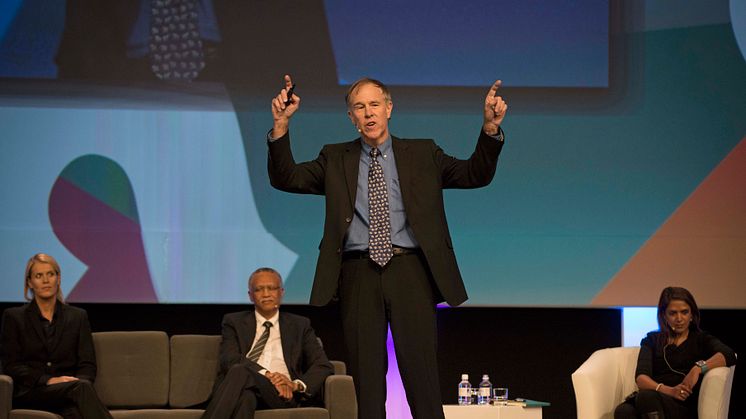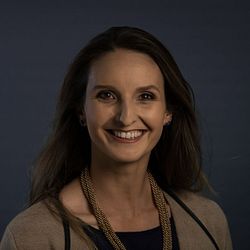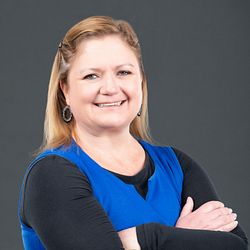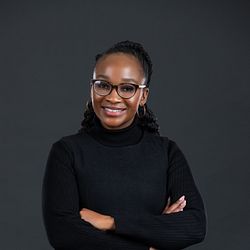
Press release -
The Big Fat Debate lives up to its billing at the Discovery Vitality Summit
The much-anticipated panel discussion between Professor Tim Noakes, Dr Vash Mungal-Singh, Dr Anthony Dalby, and Dr Celeste Naude was one of the highlights of this year’s Vitality Summit with experts in the fields of nutrition weighing up on what it means to eat healthily.
According to Professor Tim Noakes, traditional guidelines which recommend starchy foods and the sparing intake of fat are responsible for obesity in certain populations. When dietary guidelines were introduced in 1979 in the United States, obesity rose. “Maybe the diet was the problem,” he said.
In the United States, 37% of the population were diagnosed with insulin resistance, which Noakes defined as type II diabetes or pre-diabetes. Insulin resistance was a common condition, but only resulted in symptoms if individuals consumed a high carbohydrate diet.
“Were I a medical insurer, I would make it my first priority to understand insulin resistance,” said Noakes.
Contrary to what consumers were told, humans had no essential requirement for carbohydrates, and there was no known disease which resulted from carbohydrate deficiency, he said. In fact, humans had consumed a high fat diet for over 200 million years, but had only consumed cereals for less than 12 000 years.
There was no definitive evidence that dietary animal fat, or saturated fat, caused heart disease, he said. In fact, gluten or gliadin, as found in wheat, could be the cause of a wide array of diseases currently considered to be idiopathic, including autoimmune diseases.
In response, Jimmy Volmink, Dean of Health Sciences at Stellenbosch University said expert advice could be influenced by many factors, including beliefs, vested interests, values, and ideologies. He cited the example of parenting authority Dr Benjamin Spock who in the 1940s advised parents to lay infants on their stomachs in order to prevent them from choking to death on their own vomit while sleeping. However, this resulted in the cot death epidemic.
“Good intentions and plausible theories are insufficient for good advice,” Volmink said. Although research could help, sometimes the evidence was conflicting and the quality of individual studies could be poor. Systematic reviews, which used transparent methods to find relevant studies answering a well-defined question, and summarised the totality of the evidence, offered the best guidance.
“Smart health choices result from taking into account the evidence of benefits and harms,” he said.
Prof Celeste Naude, from the same University’s Centre for Evidence-based Health Care, said that all foods in their whole or unprocessed states, except for pure fats, combined protein, fat, and carbohydrates.
International dietary guidelines incorporated strict procedures to identify and reduce conflict of interest and minimise bias. However, the guidelines could not rely only on randomised controlled trials, as long-term evidence was also needed. “We can’t put people in a randomised controlled trial for 20 years,” she said.
The resulting guidelines aimed to produce guidelines which met nutrition needs, reduced the risk of lifestyle diseases, and was aimed at healthy people. It was not about isolating one nutrient, but about the total diet.
Vash Mungal-Singh, CEO of the Heart and Stroke Foundation, said there were many common messages shared by Noakes as well as dietitians.
“We’re saying, eat less. We agree on the need to avoid sugar, processed foods, and refined carbohydrates. We need to have more whole foods,” she said.
In certain areas there was disagreement, including the relative benefits of moderate fats versus high fat, and the influence of refined carbohydrates compared to a very low carbohydrate diet. But by reducing refined carbohydrates and sugar, by default, people would also reduce their total carbohydrate intake.
She urged speakers and delegates to focus on the “common enemy” of ultra-processed foods laden with sugar, salt, and refined carbohydrates. “That’s what’s killing us.”
Cardiologist Antony Dalby disputed Noakes’ assertion that there was a lack of evidence linking heart disease and cholesterol rates. In developed countries, where statins – a class of drugs which reduced cholesterol levels – were widely available, cardiovascular disease rates were declining.
He quoted one of his own patients, a 64-year-old, who told him: “I attended a lecture by Professor Noakes. I’ve gone onto his diet and stopped my statin treatment.”
Yet Noakes himself took no responsibility in his book The Real Meal Revolution. Dalby quoted from the last page of the book, which stated: “The authors cannot be held responsible or liable for the decisions and actions which readers undertake as a result of reading this content.”
Dr Craig Nossel, Head of Vitality Wellness, was asked whether Discovery would revise the Vitality HealthyFood benefit list based on Noakes’ recommendations. “We have a responsibility to 3 million people in South Africa and millions globally so we can’t afford to take any chances with their health. We stress that a healthy, balanced diet is important and this is reflected in the HealthyFood benefit offered through Vitality.”
This said, Nossel encourages the type of engagement and debate that Noakes has brought to the South African nutrition space saying, “The amount of awareness that has been raised as a direct result of Noakes’ work means more research and more insights into what living healthy means and we look forward to continued research from the medical and nutrition communities.”
Discovery information
About Discovery Limited
Discovery Limited is a South African-founded financial services organisation that operates in the healthcare, life assurance, short-term insurance, savings and investment products and wellness markets. Founded in 1992 by the current Group Chief Executive Officer Adrian Gore, Discovery was guided by a clear core purpose – to make people healthier and to enhance and protect their lives. Underpinning this core purpose is the belief that through innovation Discovery can be a powerful market disruptor.
The company, with headquarters in Johannesburg, South Africa, has expanded its operations globally and currently serves over seven million clients across South Africa, the United Kingdom, the United States, China and Singapore. Vitality, Discovery’s wellness programme, is the world’s largest scientific, incentive-based wellness solution for individuals and corporates. The global Vitality membership base now exceeds 5.5 million lives in five markets.
Discovery is an authorised financial services provider. It trades on the Johannesburg Securities Exchange under the code “DSY”.
Follow us on Twitter @Discovery_SA







